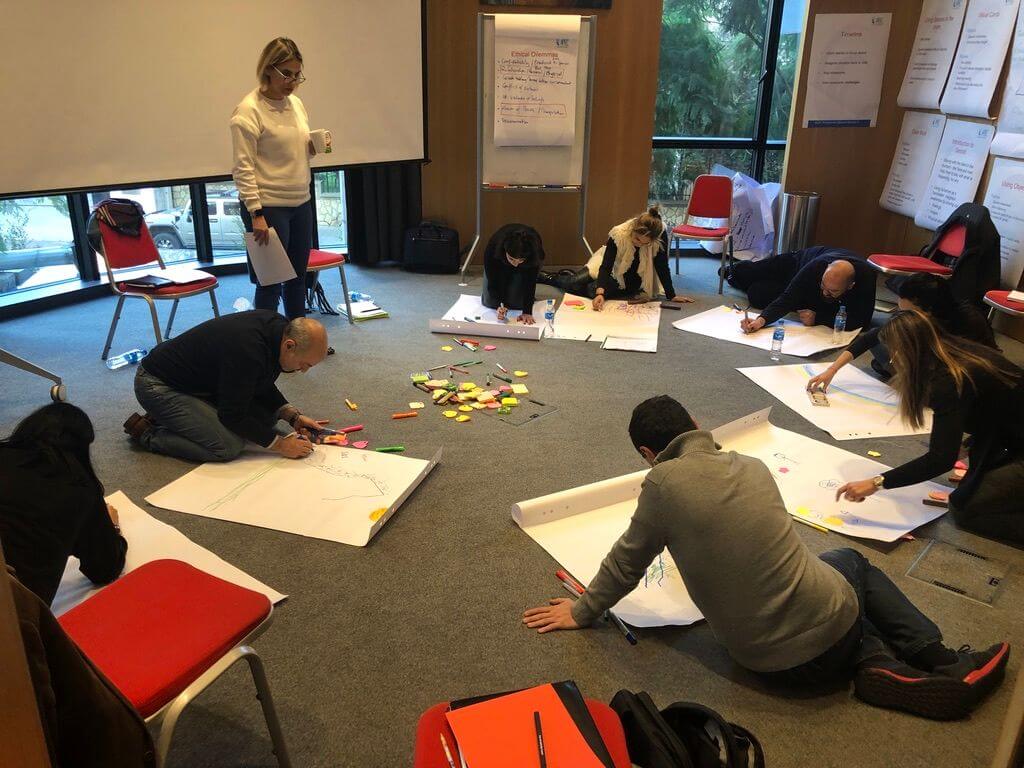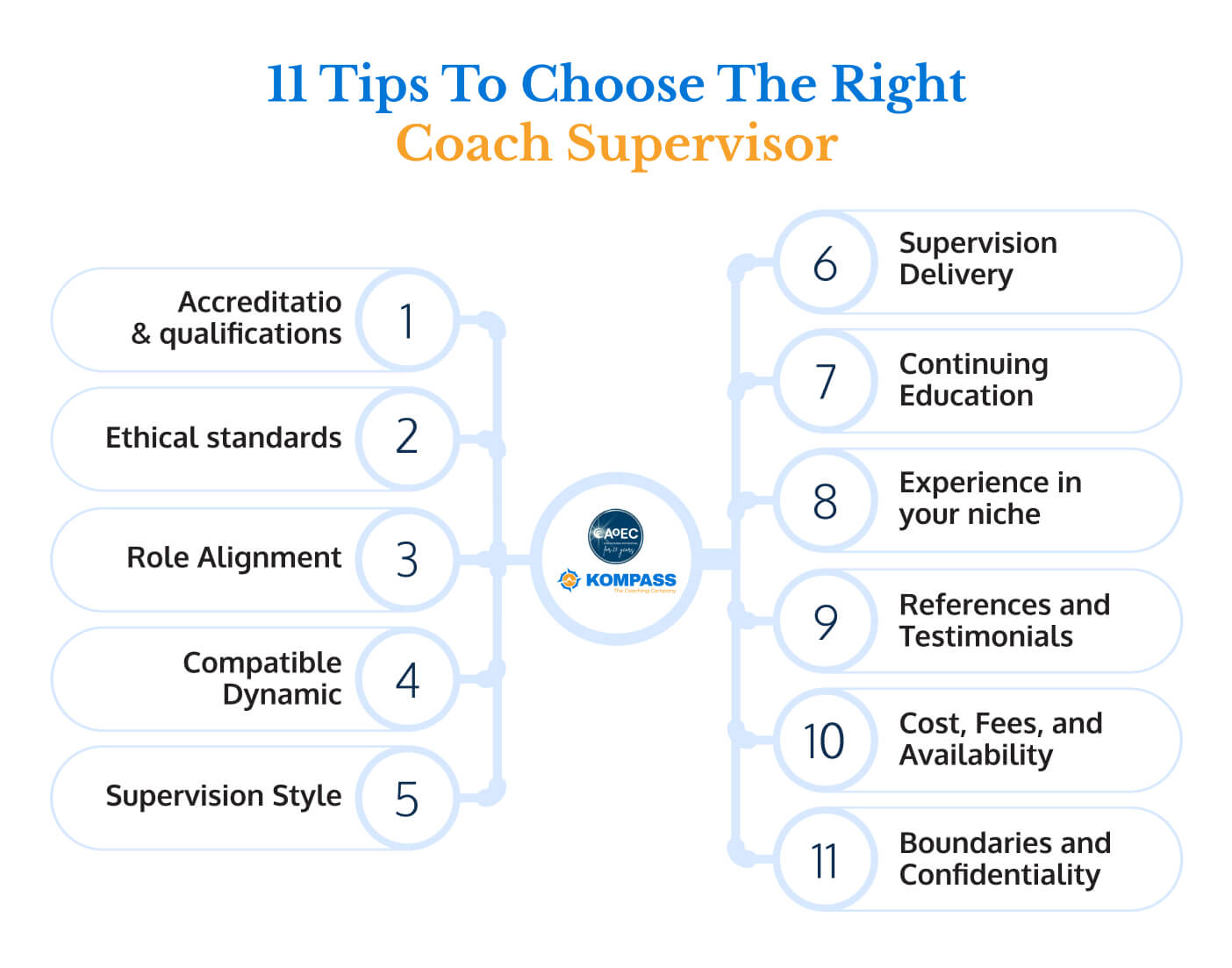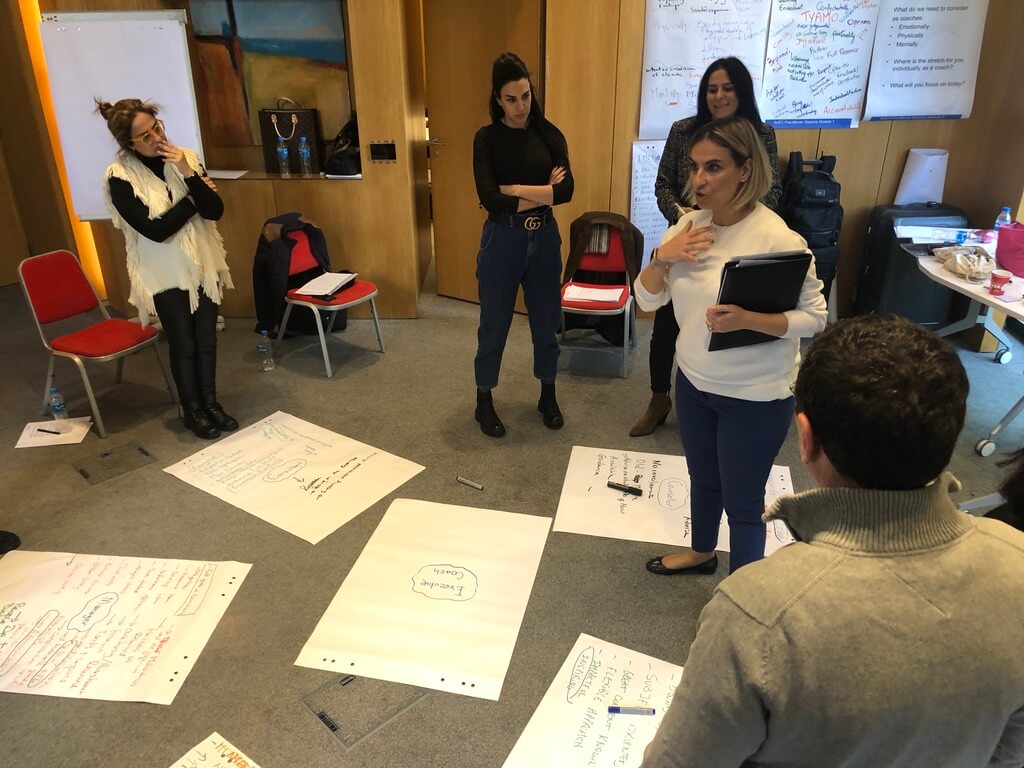Coaches are in a position to inspire positive changes in individuals and organisations. Effective coaches are competent, confident, and ethical.
Coaching supervision is ideal for coaches who want to improve their practice and nurture better client relationships. It is a continuing professional development (CPD) activity recognised by global governing bodies in coaching, including the International Coaching Federation (ICF), European Mentoring and Coaching Council (EMCC), and the Association for Coaching, among others. Undergoing coaching supervision can help you fulfil some of the hours required to apply for accreditation or renewal.
Basically, coaching supervision aims to help coaches become more effective. Coach supervisors guide coaches as they reflect on who they are and how they interact with their clients, allowing them to spot and overcome challenges that may be impacting their professional practice.

What is Coaching Supervision
Coaching supervision is a structured, reflective space where coaches meet with a trained supervisor to review their practice, explore challenges, and grow professionally. It supports coaches not just in what they do, but in how they think, feel, and show up in their work.
Coaching supervision is about ongoing professional development and ethical practice. It encourages coaches to pause and reflect, looking at what’s working, what’s not, and why. This reflection helps maintain the quality and impact of coaching over time.
Supervision is not the same as mentoring or training. The role of the supervisor is to ask questions, offer perspective, and hold a supportive space where the coach can think more clearly and make sense of their experiences.
Here are a few things coaching supervision typically includes:
- Exploring real client situations to see what’s happening beneath the surface
- Identifying patterns or blind spots that may affect how the coach works
- Considering ethical questions and professional boundaries
- Discussing the coach’s internal responses, like assumptions, doubts, or emotional triggers
- Looking at the bigger system, including the organisation, team, or culture the coach is working within
Supervision helps coaches stay aligned with professional standards (like those of ICF and EMCC), and it supports their mental and emotional resilience. It’s also a valuable source of feedback and insight when navigating complex or uncertain situations.
Coaching supervision can be delivered in different ways, one-to-one, in groups, or through peer supervision.
Supervision vs. Mentor Coaching vs. Coaching
If you’re a coach, you’ve likely come across the terms coaching, mentor coaching, and coaching supervision. While they might sound similar, they serve different purposes and focus on different aspects of your development. Here’s a simple way to understand how they differ.
- Coaching is what you offer to clients. You work with them to explore goals, overcome challenges, and move forward.
- Mentor coaching is about improving your coaching skills. It usually focuses on how well you demonstrate core competencies, often linked to credential requirements.
- Coaching supervision is about reflecting on your overall practice. It helps you step back, notice patterns, explore challenges, and consider how you show up as a coach.
The table below shows the key differences at a glance:
| Aspect | Coaching | Mentor Coaching | Coaching Supervision |
| Focus | The client’s goals and outcomes | Coaching competencies and skill development | Reflecting on practice, mindset, and ethical practice |
| Purpose | Support client growth | Improve coaching techniques | Increase self-awareness and explore coaching impact |
| Who it’s for | Clients | Coaches seeking credential feedback | Coaches wanting to reflect, grow, and improve |
| ICF relevance | Required for client delivery | Required for ICF credential applications | Counts towards ICF credential renewal (up to 10 hours) |
| Style of conversation | Goal-oriented, forward-looking | Feedback-based, competency-focused | Reflective, explorative, centred on the coach |
| Typical setting | Coach and client | Coach and mentor coach | Coach and trained supervisor (1:1, group, or peer) |
The Three Core Functions of Coaching Supervision
Coaching supervision supports coaches in different ways. One helpful way to understand it is through three core functions: formative, normative, and restorative. These were first introduced by Inskipp and Proctor and are still widely used to explain the value of supervision.
Each function focuses on a different part of your work as a coach. Together, they help you stay effective, ethical, and well-supported.
1. Formative
The formative function is about learning and development. It focuses on improving how you coach.
During supervision, you might reflect on your approach, explore what worked or didn’t work in recent sessions, or try out new ways of responding to client situations. It’s a space to build on your strengths and develop your leadership skills over time.
This function helps you grow professionally and feel more confident in your coaching practice.
2. Normative
The normative function is about standards and ethics. It helps you stay aligned with the expectations of the coaching profession.
In supervision, you can reflect on any ethical questions or situations that may have felt unclear. This might include boundaries, confidentiality, or dealing with conflict. It’s also where you check that your coaching remains safe and responsible, both for you and your clients.
This part of coaching supervision supports accountability and encourages good professional judgement.
3. Restorative
The restorative function focuses on your well-being. Coaching can be rewarding, but it can also be demanding. Supervision offers a place to pause, take a step back, and look after yourself.
You can bring any experiences that felt heavy, confusing, or frustrating, and reflect on them in a supportive environment. This can help reduce stress, restore energy, and prevent burnout.
It’s a reminder that looking after yourself is part of being an effective coach.

Benefits of Coaching Supervision
Greater self-awareness and resilience
Supervision encourages you to notice patterns in how you coach, how you respond to certain clients, and what might be influencing your thinking. Over time, this helps build self-awareness.
By talking things through in a safe space, you also become more resilient. It becomes easier to manage difficult moments and return to your work with a clearer head.
Enhanced objectivity and problem-solving
When you’re working closely with clients, it’s easy to get caught up in the detail. Supervision helps you take a step back and view situations more objectively.
With that distance, new insights often emerge. You can explore other ways to respond, test out ideas, and find clearer paths through challenges.
Ethical clarity and accountability
Supervision is a space to pause and reflect on the ethical side of your practice. If something doesn’t sit quite right, or if you’re unsure how to handle a situation, you can bring it to supervision.
This helps keep your work aligned with the values and standards of professional coaching, and gives you someone to think things through with, without judgement.
Confidence in handling complex coaching situations
Clients sometimes bring difficult or unexpected topics to coaching sessions. Supervision gives you a place to explore these situations and think about how best to respond.
You can consider different approaches, test your assumptions, and feel more prepared when similar situations arise in the future.
Prevents isolation; supports well-being
Coaching can be a solitary profession, especially if you work independently. Supervision offers connection. It’s a place to talk openly, reflect honestly, and feel supported.
Knowing you’re not working through everything on your own can reduce stress and help you stay motivated.
Qualification hours for ICF credential renewal
If you’re working towards renewing your ICF credential, coaching supervision can count towards the required continuing coach education (CCE) hours.
Up to 10 hours of supervision, received, delivered, or a mix of both can be applied to your credential renewal under the ICF’s core competency requirements.
The Goal of Coaching Supervision

-
Ensure the Quality and Integrity of Coaching
Coach supervisors help evaluate the quality and integrity of a coach’s professional practice and well-being. They ensure that the coach abides by a certain code of ethics and professional standards imposed by global governing bodies in coaching. Moreover, they provide accountability as a sounding board for ideas. They offer fresh perspectives, increased objectivity, possibilities for new client interventions, and coaching strategies.
-
Provide Coaches with Professional Support
Coaching supervision should not be oversimplified as coaching for coaches. Supervision is intended to provide coaches with professional support. Coaches engage in a reflective dialogue with a qualified coach supervisor about challenges in their practice. It’s about deepening self-awareness to understand how personal well-being, internal thought processes, and assumptions may contribute to bias or affect coaching practice.
-
Strengthen Professional Development
Coaching supervision strengthens professional development, empowering you to become a reflective practitioner. Coach supervisors help you evolve as a coach by revealing your blind spots and brainstorming solutions. They refine and expand coaching techniques, enabling you to serve clients better and be more confident handling difficult or complex client situations. They also recommend opportunities for growth and continuing education so you continue to thrive as a coach.
Key Considerations When Choosing a Coach Supervisor

-
Credentials and Qualifications
Search for an accredited coach supervisor with the qualifications and experience to provide coaching supervision. They should have relevant credentials from recognised coaching organisations and certifications for completing a coaching supervision course from a reputable training provider.
-
Ethical Standards
A proficient coach supervisor upholds and observes high ethical standards. They need to be knowledgeable about the global code of ethics for the coaching profession and apply it to their own practice.
-
Role Alignment
Note that coaching supervision is different from coach mentoring. Supervision focuses on who and how you are as a coach, while mentoring is more about what you offer and your coaching skills. If your goal is to reflect on your coaching practice through a collaborative learning experience, ensure you seek the guidance of a trained coach supervisor who can distinguish the needs of the two roles.
-
Compatible Dynamic
Coach supervisors must be able to create a reflective and safe space. They should be able to establish a good rapport with you founded on mutual trust, respect, and open communication. Having a compatible relationship dynamic with your coach supervisor is important. You need to feel comfortable about expressing challenges or roadblocks in your coaching practice so that they can help you overcome them.
-
Supervision Style
Consider what kind of supervision style you resonate with or respond to. Look for a coach supervisor who can match and adjust their supervision style to your unique learning style and situation. Select a coach supervisor with a significant level of psychological understanding, allowing them to explain theoretical frameworks in a manner you can draw insight from.
-
Supervision Delivery
Coaching supervision sessions can be 1:1, with a group of coaches led by a coach supervisor, or between peers who can supervise themselves. Work with a coach supervisor who delivers the type and frequency of supervision sessions you need or prefer, whether in-person or virtual.
-
Continuing Education
Choose a coach supervisor who is also committed and passionate about their professional development. Consider someone who is continuing coach education and has experience with or is currently undergoing coaching supervision.
-
Experience
Seek a coaching supervisor with substantial experience in the coaching industry. Someone aware of the intricacies of corporate life and organisational systems and updated with developments in the field of coaching supervision. Look into their coaching portfolio and see if they’ve successfully supervised coaches from diverse backgrounds or specialties. Consider how their expertise can contribute to your area of focus or coaching niche.
-
References and Testimonials
Ask fellow coaches if they can refer or recommend a supervisor they had a meaningful experience with. Also, review the published testimonials of the coach supervisor’s past clients. Considering this information allows you to assess their effectiveness and professionalism.
-
Cost, Fees, and Availability
Coaching supervision is an investment in your personal and professional growth as a coach. Select the coach supervisor who can offer you the most value for your time and money, considering their expertise, session format or availability, fees, payment mode, and other additional costs.
-
Boundaries and Confidentiality
Coach supervisors must be able to set and discuss the boundaries of coaching supervision. They should also maintain strict confidentiality of the sessions to foster trust and protect the integrity of the coaching relationship and process.

Takeaways on Coaching Supervision
Coaching supervision involves engaging in a reflective dialogue about one’s coaching practice. It can be a 1:1, group, or peer supervision session where coaches seek the guidance and objective perspective of a coach supervisor about their strengths and limitations, considering their clients and the system they work in.
Coach supervisors help coaches understand how personal life experiences, patterns, and habits can influence or interfere with their professional practice and client relationships. They also recommend potential growth opportunities coaches can pursue. They guide you as you process complex client situations that make you insecure, and suggest alternative courses of action that could yield more positive or productive outcomes. They help you become more self-aware, boosting your ethical competency and professionalism.
When choosing a coach supervisor, consider someone whose training and expertise can bring clarity to your coaching practice and help you develop your signature presence. Work with someone who inspires you to become a confident, resourceful, and more effective coach. Also, see if you can request a discovery call to determine whether you resonate with their coaching philosophy and supervision style.
If you’re looking for a coach supervisor in the UAE, please contact us at Kompass Consultancy.
Frequently Asked Questions About Coaching Supervision
Who should consider coaching supervision in the UAE?
If you’re an active coach working in the UAE, whether in executive, life, or team coaching, coaching supervision is for you.
It’s particularly helpful if you’re looking to reflect on your work, explore challenging cases, maintain ethical practice, or prevent burnout. Many coaches across the UAE use supervision as a regular part of their professional development, especially those working independently or in fast-paced corporate settings.
Is coaching supervision required to get or renew an ICF credential?
Supervision is not required to earn your initial ICF credential, but it can count towards your credential renewal.
ICF allows up to 10 hours of coaching supervision, received or delivered as part of your Continuing Coach Education (CCE) for renewal. If you’re pursuing team coaching accreditation (ACTC), supervision is a core requirement.
How is coaching supervision delivered, do I have to meet in person?
At Kompass, we offer coaching supervision both in-person and virtually.
You can choose a format that suits your schedule and location. We provide one-to-one sessions, group supervision, and peer-based models, depending on your preference and developmental goals. Many of our clients across the UAE and the region prefer virtual sessions for flexibility.
How is coaching supervision different from mentoring or coach training?
Supervision is not about teaching or giving advice, it’s about reflection and professional support.
While coach mentoring focuses on performance and techniques, and training teaches specific models or skills, coaching supervision explores how you work as a coach, what influences your decisions, and how your personal and professional life intersect. It helps you understand your impact and strengthen your ethical awareness.








